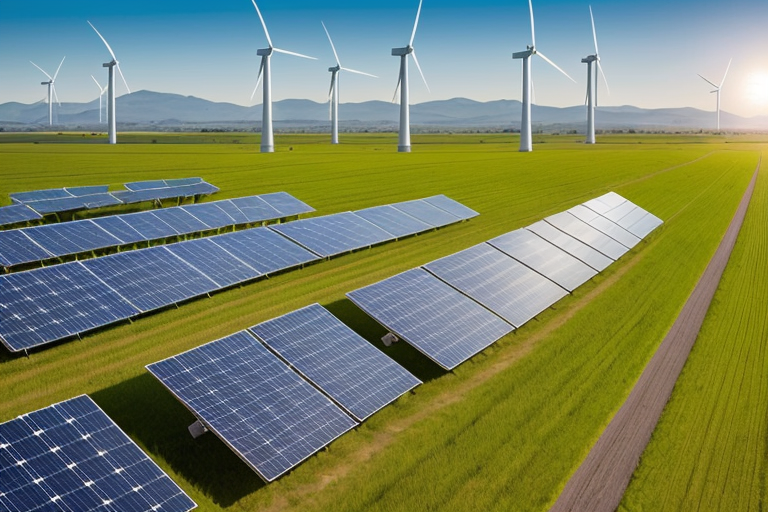Climate Change Politics: Why It Matters
Climate change is one of the most pressing issues of our time. It affects every aspect of our lives, from the food we eat to the air we breathe. As the world continues to grapple with the effects of climate change, it has become increasingly clear that addressing this issue requires political action.
In this article, we will explore the political actions that have been taken to address climate change, the role of activism in climate change politics, and the impact of President Biden’s climate change policies. By the end of this article, we hope to provide a comprehensive overview of the current state of climate change politics and the importance of taking action to address this critical issue.
In the following sections, we will discuss the political actions that have been taken to address climate change. We will look at countries such as Norway, Sweden, and Iceland, which have introduced renewable energy. We will also examine carbon taxes in France, Ireland, and Canada, as well as renewable energy mandates in the United Kingdom and Germany.
We will then explore the role of activism in climate change politics. We will discuss the emergence of movements such as Fridays for Future and how activism has influenced policymakers. We will also examine the importance of young people’s votes in climate change politics.
Finally, we will examine President Biden’s impact on climate change politics. We will discuss the significance of rejoining the Paris Climate Accord, President Biden’s additional climate action plans, and how the United States’ involvement has impacted global climate change politics.
Overall, this article aims to provide a comprehensive overview of the current state of climate change politics. We hope that by the end of this article, readers will have a better understanding of the importance of taking action to address climate change and the role that politics can play in this critical issue.
The Power of Individual Action
While government policies and international agreements are crucial in addressing climate change, individual actions can also make a significant impact. One person who understands this is Frank, a resident of a small town in the United States. Frank has always been passionate about the environment and has taken steps to reduce his carbon footprint. He walks or bikes to work, uses energy-efficient appliances, and composts his food waste. Frank’s actions may seem small, but they add up and inspire others to take action as well.
However, not everyone is as committed to reducing their carbon footprint as Frank. Some people may not see the urgency of the issue or may not have the resources to make changes. This is where judges can play a crucial role in enforcing environmental regulations. Judges have the power to hold corporations and individuals accountable for their actions that harm the environment. For example, a judge may order a company to pay fines or stop using harmful chemicals in their production process.
One person who has dedicated their career to fighting for climate justice is Uvanni, a well-known environmental lawyer. Uvanni has represented communities affected by pollution and has fought against corporations that prioritize profits over the environment. Their work has helped to raise awareness about the impact of climate change and the need for urgent action.
While individual actions and legal action are important, they cannot replace the need for systemic change. Governments and corporations must take responsibility for their role in contributing to climate change and take action to reduce their emissions. However, individual actions and legal action can help to push for change and hold those in power accountable.
In addition to individual actions and legal action, education and awareness are also crucial in addressing climate change. People need to understand the impact of their actions and the urgency of the issue. This is where initiatives such as climate education in schools and public awareness campaigns can make a difference.
The Power of Activism in Climate Change Politics
As the effects of climate change become more apparent, people around the world are taking action to push policymakers to address this pressing issue. One of the most significant ways that people are making their voices heard is through activism. From protests to social media campaigns, activism has played a crucial role in shaping climate change politics.
One of the most prominent examples of climate change activism is the Fridays for Future movement. Started by Swedish activist Greta Thunberg, the movement has inspired young people around the world to take action on climate change. The movement has organized global strikes and protests, demanding that policymakers take urgent action to address the climate crisis.
The impact of activism on climate change politics cannot be overstated. In many cases, activists have been able to influence policymakers and push them to take action on climate change. For example, in the United States, the Sunrise Movement has been instrumental in pushing for the Green New Deal, a comprehensive plan to address climate change and economic inequality.
One of the reasons that activism has been so effective in shaping climate change politics is that it has brought attention to the issue. By organizing protests and social media campaigns, activists have been able to raise awareness about the urgency of the climate crisis. This has put pressure on policymakers to take action and has helped to shift public opinion on the issue.
Another important aspect of activism in climate change politics is the role of young people. As the ones who will be most affected by the impacts of climate change, young people have a unique stake in the issue. By organizing and participating in protests and other forms of activism, young people have been able to make their voices heard and demand action from policymakers.
In addition to raising awareness and influencing policymakers, activism has also played a crucial role in shaping public opinion on climate change. By organizing campaigns and events, activists have been able to change the narrative around climate change and shift public opinion in favor of taking action.
Overall, the role of activism in climate change politics cannot be overstated. From the Fridays for Future movement to the Sunrise Movement, activists around the world have been instrumental in pushing for action on climate change. As we continue to face the impacts of the climate crisis, it is clear that activism will continue to play a crucial role in shaping climate change politics.
As Frankie, a young activist, has said, “We cannot wait for politicians to take action on climate change. We need to demand action and hold them accountable for their actions.” It is up to all of us to judge the actions of our leaders on climate change and push them to take the urgent action that is needed to address this pressing issue.
President Biden’s Impact on Climate Change Politics
Since taking office, President Biden has made it clear that addressing climate change is a top priority for his administration. He has taken several actions to combat climate change, including rejoining the Paris Climate Accord, which the United States withdrew from under the previous administration.
One of the first actions President Biden took was to sign an executive order on climate change. This order includes a goal of achieving net-zero emissions by 2050 and a plan to conserve 30% of U.S. lands and waters by 2030. The order also establishes a National Climate Task Force, which is responsible for developing a government-wide approach to combating climate change.
President Biden has also proposed a $2 trillion infrastructure plan, which includes significant investments in clean energy and infrastructure. The plan includes funding for electric vehicles, renewable energy, and modernizing the electric grid. This plan is a significant step towards achieving the goal of net-zero emissions by 2050.
In addition to these actions, President Biden has also taken steps to reverse many of the previous administration’s environmental policies. He has halted new oil and gas leases on federal lands and waters, revoked the permit for the Keystone XL pipeline, and reinstated several environmental regulations.
President Biden’s actions have not gone unnoticed by the international community. His decision to rejoin the Paris Climate Accord has been welcomed by many countries, and his administration has been actively engaging with other countries to address climate change. This renewed commitment by the United States has helped to reinvigorate global efforts to combat climate change.
The United States’ involvement in climate change politics is crucial, as it is one of the world’s largest emitters of greenhouse gases. President Biden’s actions have demonstrated that the United States is once again taking a leadership role in addressing climate change. This leadership is essential in encouraging other countries to take action and in achieving the goals set out in the Paris Climate Accord.









